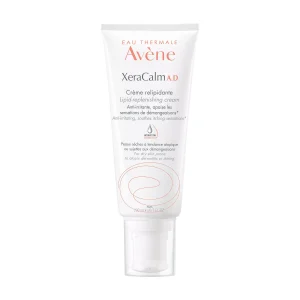
Eczema is a common skin condition that affects millions of people worldwide. Despite its prevalence, there are many myths and misconceptions surrounding this condition. From miracle cures to false beliefs about the causes, there’s a lot of information out there that simply isn’t true. In this article from The Dermo Lab, we’ll explore the most common eczema facts and fiction, separating fact from fiction and uncovering the truth about this often-misunderstood skin condition. So, whether you’re struggling with eczema yourself or just curious to learn more, keep reading to discover the real story behind this complex and often frustrating condition.
Eczema fictions
1- Fiction: Eczema is caused by poor hygiene.
One of the most common misconceptions about eczema is that it is caused by poor hygiene. While it’s true that good hygiene is important for overall skin health, eczema is not caused by a lack of cleanliness. In fact, excessive washing or scrubbing can actually make eczema symptoms worse. Eczema is an inflammatory skin condition that is caused by a combination of genetic and environmental factors, including a weakened skin barrier, an overactive immune system, and triggers such as allergens, irritants, and stress.
2- Fiction: Eczema is contagious.
Eczema is not contagious and cannot be spread from person to person through physical contact. While it’s true that eczema can look red, rashy, and sometimes even weepy, it’s not caused by a bacterial or viral infection. Eczema is a chronic inflammatory condition that affects the skin, not an infectious disease.
3- Fiction: Eczema can be cured.
Unfortunately, there is currently no cure for eczema. While there are many treatments available to manage eczema symptoms, including topical creams, oral medications, and light therapy, these treatments do not provide a permanent cure. Eczema is a chronic condition that requires ongoing management and care.
4- Fiction: Steroid creams are dangerous and should be avoided.
Steroid creams are a common treatment for eczema and can be very effective in reducing inflammation and itchiness. However, there is a common misconception that steroid creams are dangerous and should be avoided. While it’s true that long-term use of high-potency steroid creams can lead to skin thinning and other side effects, when used appropriately under the guidance of a healthcare professional, they can be a safe and effective treatment option for eczema. It’s important to follow your healthcare provider’s instructions for using steroid creams and to avoid overusing or misusing them.
5- Fiction: Eczema is a childhood condition that goes away on its own.
While eczema is more common in children than adults, it is not a condition that always goes away on its own. In fact, many people with eczema continue to experience symptoms into adulthood. While some children do outgrow their eczema, others may continue to experience flare-ups throughout their lives. It’s important to seek treatment for eczema and to work with a healthcare professional to develop a management plan that works for you.
Eczema facts
1- Fact: Eczema can be triggered by allergens and irritants.
While eczema is not caused by poor hygiene, certain allergens and irritants can trigger eczema flare-ups. Common eczema triggers include harsh soaps, detergents, and cleaning products; wool and other scratchy fabrics; dust mites; pet dander; pollen; and certain foods. Identifying and avoiding these triggers can help manage eczema symptoms and prevent flare-ups.
2-Fact: Eczema can have a significant impact on quality of life.
Eczema is more than just a physical skin condition – it can have a significant impact on a person’s mental and emotional well-being. The constant itchiness, pain, and discomfort associated with eczema can lead to sleep disturbances, anxiety, depression, and social isolation. Additionally, many people with eczema feel self-conscious about their skin and may avoid certain activities or clothing styles to hide their symptoms. It’s important to recognize the emotional toll that eczema can take and seek support from healthcare professionals, family, and friends.
3- Fact: Moisturizing is key to managing eczema.
One of the most important steps in managing eczema is keeping the skin moisturized. People with eczema have a weakened skin barrier that allows moisture to escape more easily, leading to dry, itchy skin. Using a thick, fragrance-free moisturizer on a daily basis can help restore the skin barrier and reduce eczema symptoms. It’s important to choose a moisturizer that is appropriate for eczema-prone skin and to apply it immediately after bathing or showering when the skin is still damp.
Our selection of products:
A-Derma Exomega Control Emollient Cream
Ducray Dexyane Anti-Scratching Emollient Cream
Eau Thermale Avène XeraCalm A.D Lipid-Replenishing Cream
4- Fact: Stress can trigger eczema flare-ups.
Stress is a common trigger for eczema flare-ups. When you’re stressed, your body releases a hormone called cortisol, which can affect your immune system and lead to inflammation in your body, including your skin. Stress can also cause you to scratch or rub your skin more, leading to further irritation and exacerbating eczema symptoms. Managing stress through techniques such as meditation, yoga, or exercise can help reduce the frequency and severity of eczema flare-ups.
5- Fact: Eczema can affect any part of your body.
Eczema can occur on any part of the body, including the face, neck, hands, feet, and genitals. It can also vary in severity, from mild patches of dry skin to severe, widespread inflammation. Understanding the different types of eczema and how they can manifest on different parts of the body is key to effective management and treatment.
In conclusion, eczema is a common skin condition that can be confusing and frustrating to manage. Separating fact from fiction is important in understanding the condition and developing a management plan that works for you. Remember that while there is currently no cure for eczema, there are many treatments available to manage symptoms and improve quality of life. If you’re struggling with eczema, seek support from healthcare professionals, family, and friends, and don’t be afraid to ask questions and advocate for yourself. Stay informed, seek support, and don’t give up hope. By working together, we can continue to raise awareness and improve the lives of those living with eczema.











